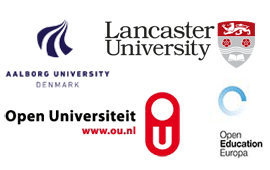

‘Hospitality at a distance’: supervisory practices and student experiences of supervision in online Masters dissertations
Philippa Sheail and Jen Ross, Centre for Research in Digital Education, The Moray House School of Education, The University of Edinburgh
This paper is informed by a one-year research project which looked at supervisory practices and student experiences in the context of fully online Masters programmes. In these programmes, students are often based in different country locations to their dissertation supervisors, and some may never visit the university campus. The research project examined supervisory practices and processes across four online programmes in the social sciences and medical education, including workshops with supervisors, and explored the Masters dissertation experiences of eighteen graduates who had studied on one of the four selected postgraduate programmes taught fully online from the University of Edinburgh.
In this paper, we focus on the recurrent theme of ‘connection and disconnection’ which emerged from our analysis of interviews with recent dissertation students. This theme is considered in relation to student accounts of positive experiences of support and continuity in supervisory relationships, juxtaposed with reports of disconnection and isolation during the dissertation process; experiences which were often accepted by graduates as an inevitable part of working on an independent research project.
Building on Ruitenberg's (2011) work on 'an ethic of hospitality' (situated by Ruitenberg as an alternative to the ‘ethics of autonomy, virtue and care’ (p.28) in education), we explore these experiences within the theoretical framework of 'hospitality at a distance'. We propose that ‘hospitality at a distance’ is a useful framework in the context of distance education supervision, where home and host, the ‘at-home’, might be contested, and, we suggest in this paper, where we might need to rethink what it is to, ‘leave space for those students and those ideas that may arrive’ (Ruitenberg 2011 p.33) from beyond the campus. We also suggest that achieving ‘success’ in dissertations at a distance may involve accepting the instability of relations between student and supervisor, that are marked not only by power dynamics, expectations, and performances of student and teacher identities (as all supervisory relationships are), but also by the varied and shifting conceptions of home, welcome, and ‘belonging’ that accompany the distanced encounter.
Keywords
Postgraduate supervision, distance education, digital education, masters dissertations, hospitality
Joint Organising Institutions
| Conference Travel and Accommodation |Doctoral Consortium | Past Conference Proceedings | Contact |